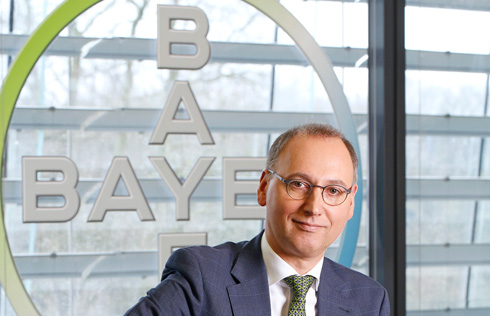China's financial sector more open to fintech: CFA Institute
BEIJING - China's financial sector has shown more openness to new technology than many developed markets, according to a senior manager with the Chartered Financial Analyst (CFA) Institute.
As a young market, it is easier for Chinese financial firms to quickly adapt their thinking and models to changing technologies and businesses, said Nick Pollard, managing director for the Asia-Pacific at the CFA Institute.
The CFA Institute, a leading global association of financial professionals, issued a report based on surveys of senior financial professionals in April, which showed that the current global investment management industry is in the midst of profound changes, including technological advances, redefined client preferences, new macroeconomic conditions, different regulatory regimes reflecting geopolitical changes, and demographic shifts.
For example, China is facing changing demographic conditions as society ages faster than before, requiring more sophisticated investment management to ensure the pension gap will be narrowed, according to Pollard.
Over the past decade, China has rapidly grown into one of the most important markets for global financial and investment communities and is increasingly integrated with the global financial market thanks to major breakthroughs like the Shanghai-Hong Kong Stock Connect, Shenzhen-Hong Kong Stock Connect and the MSCI's inclusion of Chinese A-shares, he said.
Pollard said he was surprised by the strong momentum of green finance in China, which has been innovative in funding efforts to protect the environment.
China decided in June to set up five pilot zones for green finance, and the central bank is expected to include green credit in its macro-prudential assessment to encourage financing for green projects.
"China's financial sector has grown from a low base, but the speed is fast, especially in green finance, and that's a story that the world should know," Pollard said.
The CFA Institute has included fintech, green finance and other emerging sub-sectors in its qualification courses, he added.
Applicants have to pass three rounds of exams and work in investment-related sectors for at least four years to obtain CFA certificates.
China has more than 4,000 CFA certificate holders, making it one of CFA's fastest growing markets, according to Pollard.
As a young market, it is easier for Chinese financial firms to quickly adapt their thinking and models to changing technologies and businesses, said Nick Pollard, managing director for the Asia-Pacific at the CFA Institute.
The CFA Institute, a leading global association of financial professionals, issued a report based on surveys of senior financial professionals in April, which showed that the current global investment management industry is in the midst of profound changes, including technological advances, redefined client preferences, new macroeconomic conditions, different regulatory regimes reflecting geopolitical changes, and demographic shifts.
For example, China is facing changing demographic conditions as society ages faster than before, requiring more sophisticated investment management to ensure the pension gap will be narrowed, according to Pollard.
Over the past decade, China has rapidly grown into one of the most important markets for global financial and investment communities and is increasingly integrated with the global financial market thanks to major breakthroughs like the Shanghai-Hong Kong Stock Connect, Shenzhen-Hong Kong Stock Connect and the MSCI's inclusion of Chinese A-shares, he said.
Pollard said he was surprised by the strong momentum of green finance in China, which has been innovative in funding efforts to protect the environment.
China decided in June to set up five pilot zones for green finance, and the central bank is expected to include green credit in its macro-prudential assessment to encourage financing for green projects.
"China's financial sector has grown from a low base, but the speed is fast, especially in green finance, and that's a story that the world should know," Pollard said.
The CFA Institute has included fintech, green finance and other emerging sub-sectors in its qualification courses, he added.
Applicants have to pass three rounds of exams and work in investment-related sectors for at least four years to obtain CFA certificates.
China has more than 4,000 CFA certificate holders, making it one of CFA's fastest growing markets, according to Pollard.
Related Stories
Most Viewed in 24 Hours



















